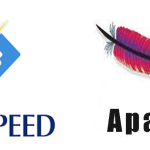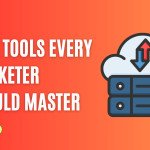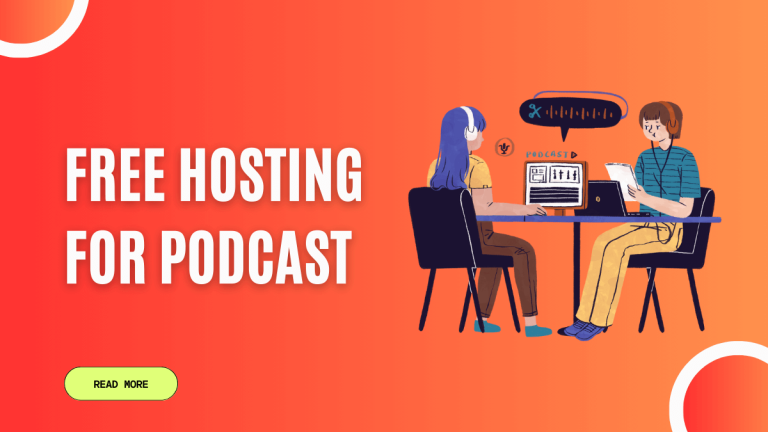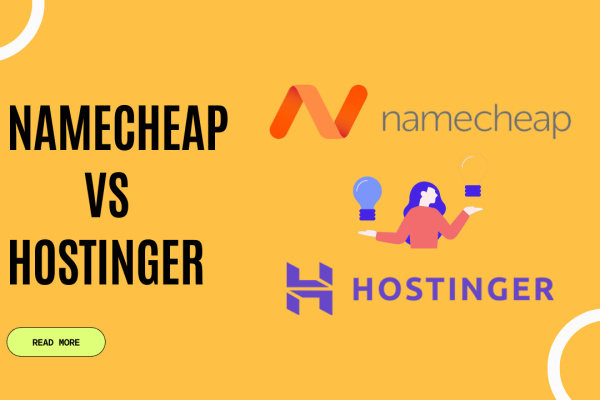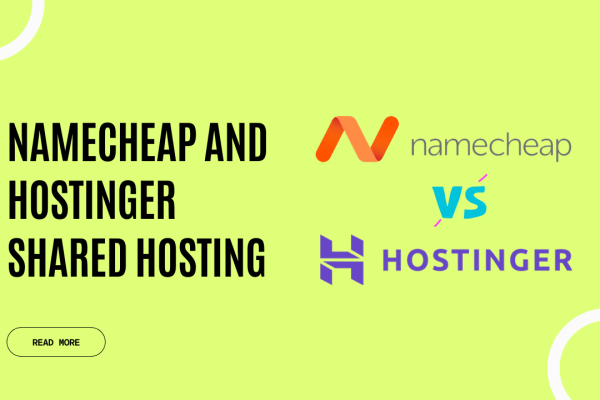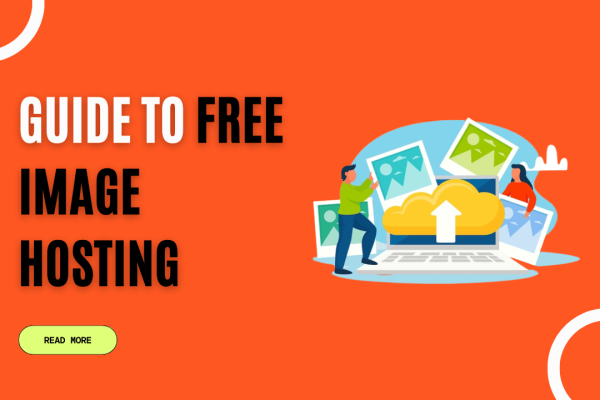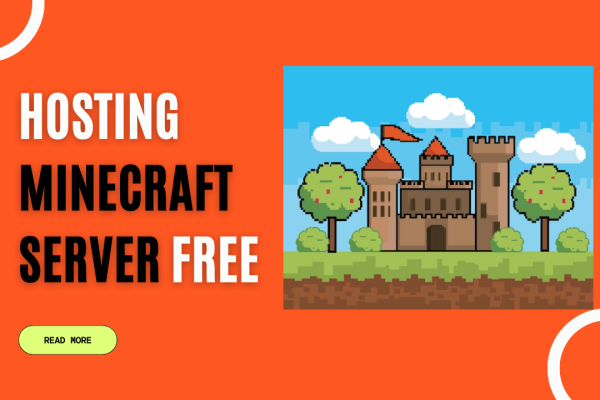In the realm of digital audio, podcasts have become an incredibly popular medium for sharing knowledge, stories, and entertainment. Whether you’re a seasoned podcaster or just getting started, the importance of reliable and cost-effective hosting cannot be overstated. In this comprehensive guide, we will explore the ins and outs of free hosting for podcasts, helping you make informed decisions and maximize your podcast’s reach and impact.
Free Hosting for Podcasts
Podcasting has evolved from a niche hobby to a mainstream form of media. With millions of podcasts available on various topics, it’s crucial to find a hosting solution that suits your needs and budget. Free hosting for podcasts is an option that many podcasters consider, especially when they’re starting. But is it the right choice for you? Let’s dive into the world of free podcast hosting and uncover its benefits, limitations, and how to make the most of it.
Free Hosting for Podcasts: What You Need to Know
What Is Free Hosting for Podcasts?
Free hosting for podcasts refers to platforms and services that allow podcasters to upload, store, and distribute their audio content without incurring any costs. These services typically offer a limited amount of storage and bandwidth for free, making them an attractive choice for newcomers and hobbyist podcasters.
Advantages of Free Podcast Hosting
Cost-Efficiency: The most apparent advantage of opting for free podcast hosting is the cost factor. Especially for novice podcasters looking to dip their toes into the world of audio content, the prospect of not incurring any financial commitments is a significant perk. This allows you to experiment and test your podcasting waters without the burden of initial expenses.
User-Friendly: Many free podcast hosting platforms are thoughtfully designed with user-friendliness in mind. This means that even if you’re a complete beginner, you won’t find yourself overwhelmed. Uploading and managing your podcast episodes is made straightforward, helping you focus on content creation rather than technical intricacies.
No Technical Hassles: With free podcast hosting, you can leave the worries of server maintenance and technical issues behind. The hosting provider takes on the responsibility of ensuring that your podcast is available to your audience without disruptions. This frees you from the complexities of managing server infrastructure.
Limitations of Free Podcast Hosting
While free hosting has its share of advantages, it’s equally vital to be aware of its limitations:
Limited Storage: Most free hosting plans come with restrictions on storage space. This limitation can affect the number of episodes you can host and the duration of those episodes. As your podcast grows, you might find these constraints increasingly limiting.
Bandwidth Restrictions: Another limitation you might encounter with free podcast hosting is bandwidth constraints. This can influence the availability and download speed of your episodes. If your podcast gains popularity, you might encounter issues with bandwidth limits.
Branding and Monetization: Free hosting often comes with certain branding requirements or limitations on monetization options. This can impact the overall professionalism of your podcast. You might have to incorporate branding elements from the hosting platform, and your ability to generate revenue could be restricted.
Finding the Right Free Podcast Hosting Platform
Choosing the ideal hosting platform is a pivotal decision that can significantly impact your podcast’s success. Here are key factors to consider:
1. Storage and Bandwidth
Evaluating the storage and bandwidth quotas offered by different free hosting providers is essential. This assessment ensures that your hosting plan aligns with your podcast’s current requirements and future growth. You wouldn’t want to outgrow your hosting’s capabilities too quickly.
2. Branding and Customization
Some free hosting platforms may impose their branding elements on your podcast page or limit your customization options. It’s crucial to carefully read the terms and conditions to fully grasp these restrictions. Maintaining control over your podcast’s branding and appearance can be essential for your podcast’s identity.
3. Monetization Opportunities
If your long-term goal includes generating revenue from your podcast, it’s crucial to delve into the hosting platform’s policies regarding advertising and sponsorships. Some free hosting providers may offer limited monetization options, while others may provide more flexibility.
4. Analytics and Insights
Access to comprehensive analytics can provide valuable insights into your podcast’s audience and performance. Understanding your listeners’ demographics and their behavior can help you tailor your content to better resonate with your audience.
5. User Interface
A user-friendly interface can make your podcasting journey more enjoyable and efficient. Platforms that are intuitive and easy to navigate can save you time and effort when it comes to uploading and managing your episodes.
6. Community and Support
Considering the presence of a supportive community or responsive customer support can be invaluable when you encounter issues or have questions. Being able to seek assistance and share experiences within a community can enhance your podcasting experience.
Read More: Best Hosting for WordPress
Top 5 Hosting Providers for Podcasts
1. Spotify for Podcasters
Spotify for Podcasters is a powerhouse in the podcasting world, offering an extensive reach to millions of active users. With robust analytics, effortless monetization, and a user-friendly interface, it’s a top choice for podcasters looking to share their content with a massive and engaged audience.

Features:
With Spotify for Podcasters, you gain access to a vast potential audience, thanks to the platform’s millions of active users. This extensive reach can be a game-changer for your podcast’s visibility.
Analytics tools are at your fingertips, providing detailed insights into your podcast’s performance. This data can help you make informed decisions to refine your content strategy.
Monetization opportunities are available on Spotify, allowing you to explore advertising options and potentially generate revenue from your podcast.
The user-friendly interface simplifies the process of uploading and managing your podcast episodes, ensuring a smooth experience.
Pricing:
Spotify for Podcasters is entirely free to use, making it an attractive option for those conscious of budget constraints.
Read more about Spotify for Podcasters
2. Acast
Acast is a dependable podcast hosting platform known for its reliable hosting and efficient content distribution. It provides monetization options through ads and sponsorships, detailed analytics, and customizable branding, making it an excellent choice for podcasters seeking growth and revenue opportunities.
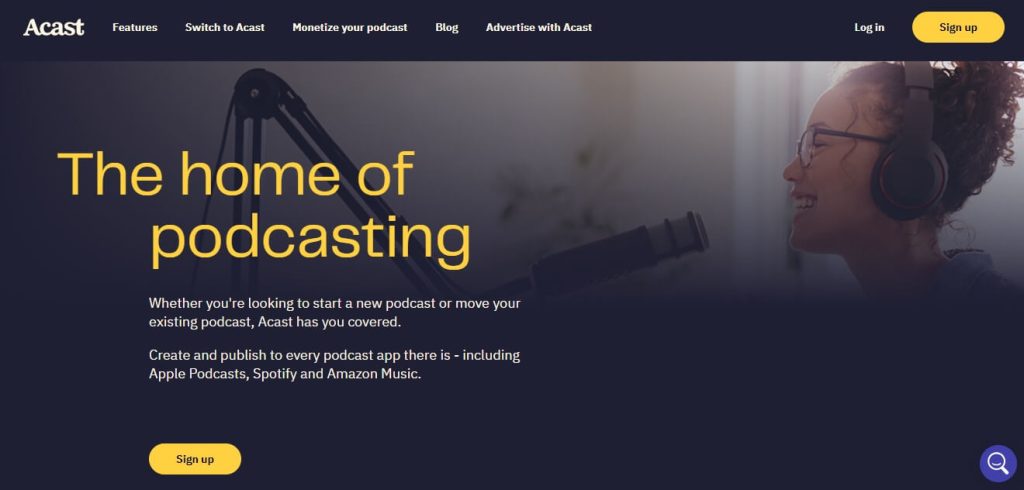
Features:
Acast offers not only reliable hosting but also efficient distribution of your podcast, ensuring that your content reaches your intended audience effectively.
Monetization options are available, allowing you to monetize your podcast through ads and sponsorships. This can be a significant source of revenue for your podcasting endeavors.
Gain valuable insights into your listeners and episode performance with Acast’s analytics tools. Understanding your audience better can help you refine your content and engagement strategies.
Customization options provided by Acast allow you to personalize your podcast page and branding, maintaining your podcast’s unique identity.
Pricing:
Acast’s pricing varies depending on your podcast’s specific requirements. You can explore their pricing options on their official website.
3. Pinecast
Pinecast stands out with its unlimited storage, ideal for podcasters planning to build extensive episode libraries. It also offers podcasters the ability to create a customizable website, in-depth audience analytics, and budget-friendly pricing, making it a versatile choice for various podcasting needs.
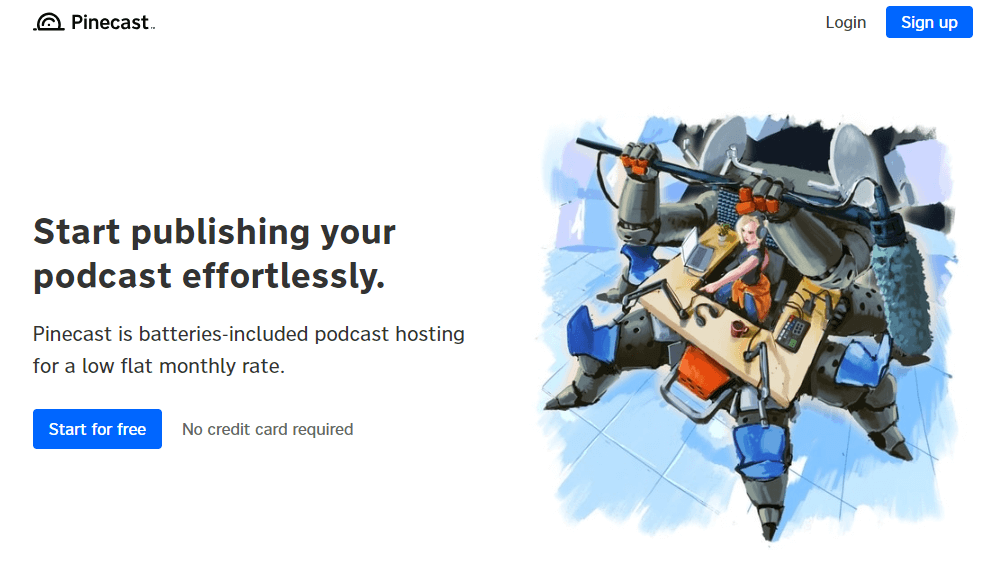
Features:
Pinecast offers podcasters unlimited storage, which is ideal for those planning to create a substantial library of episodes.
With Pinecast, you have the option to create a customizable website for your podcast. This dedicated website can enhance your podcast’s online presence and provide a hub for your audience.
Audience analytics are available to help you understand your listeners better. These insights can assist you in tailoring your content to better cater to your audience’s preferences.
Pinecast’s pricing options include budget-friendly plans, making it accessible to podcasters with varying needs and financial considerations.
Pricing:
Pinecast provides both free and paid plans, each with distinct features catering to different podcasting requirements.
4. Podomatic
Podomatic excels in user-friendliness, simplifying podcast creation and management. It features built-in social sharing, a convenient mobile app, and monetization options through premium content and ads. For those seeking ease of use and broad outreach, Podomatic is a valuable choice.
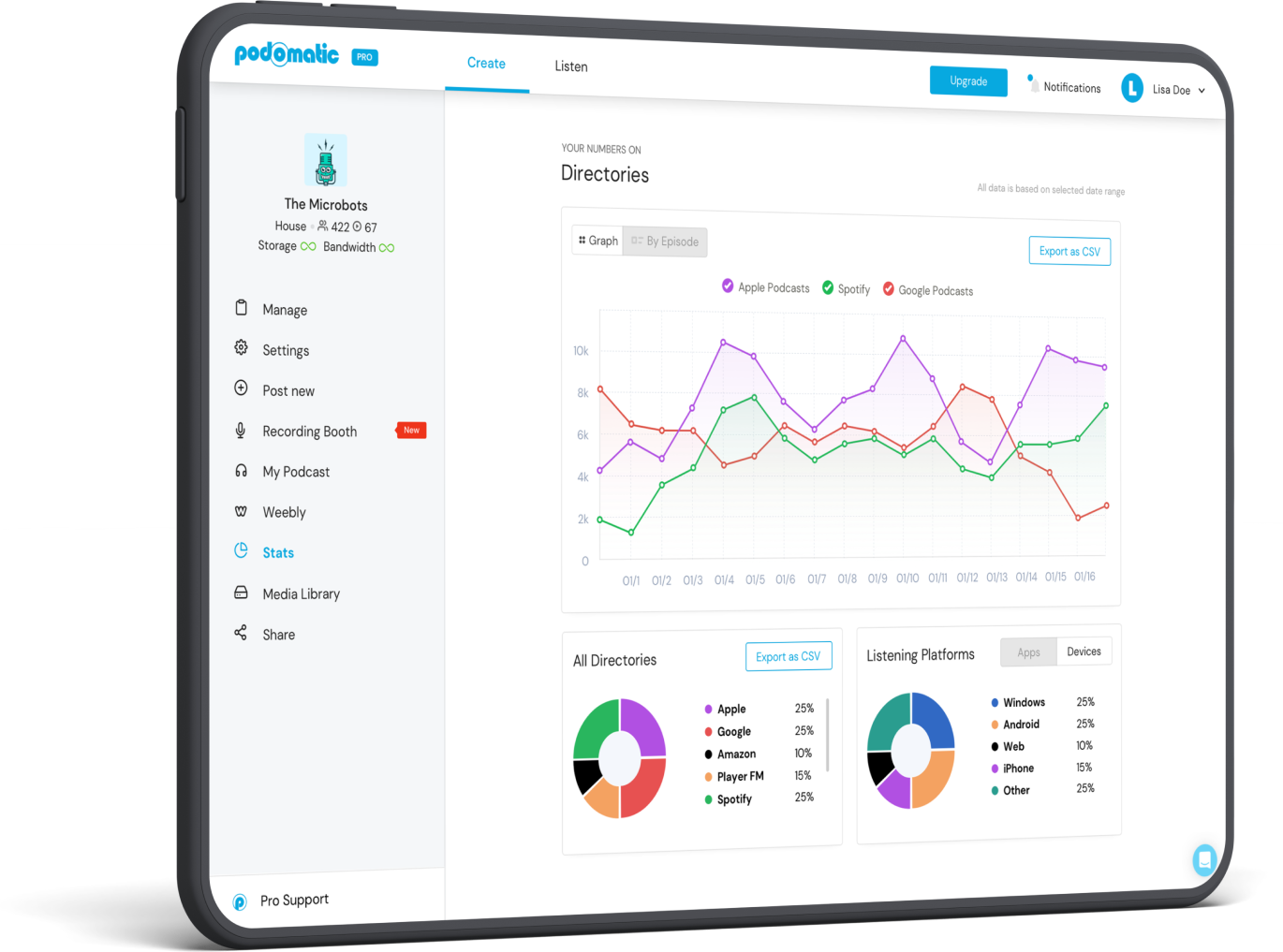
Features:
Podomatic is known for its user-friendly platform, making podcast creation and management accessible to individuals of all technical backgrounds.
Built-in social sharing features enable you to effortlessly promote your episodes on various social media platforms, expanding your podcast’s reach.
The availability of a mobile app from Podomatic allows you to manage your podcast on the go, ensuring convenience and flexibility in your podcasting endeavors.
Podomatic offers monetization options through premium content and ads, giving you opportunities to generate revenue from your podcast.
Pricing:
Podomatic provides a range of plans, including free and paid options, with varying features tailored to different podcasters’ needs.
5. Buzzsprout
Buzzsprout specializes in optimizing podcast growth, helping creators reach wider audiences. Its detailed analytics offer insights into listener demographics and episode performance. With the ability to create dedicated podcast websites and easy integration with other platforms, Buzzsprout is a dynamic option for ambitious podcasters.
Features:
Buzzsprout is designed to optimize your podcast’s growth, helping it reach a wider and more engaged audience.
Detailed analytics provide insights into listener demographics and episode performance, allowing you to fine-tune your content strategy.
Buzzsprout enables you to create a dedicated website for your podcast, enhancing your online presence and branding.
Integration capabilities with other podcast platforms make it easy to reach a broader audience.
Pricing:
Buzzsprout offers both free and paid plans, each with distinct features to cater to various podcasting needs and goals.
Conclusion
Free hosting for podcasts presents an attractive option for aspiring podcasters and those working within tight budgets. However, it’s crucial to weigh the advantages and limitations carefully when considering which hosting platform to choose. To make the most of free hosting, select a platform that aligns with your podcasting goals and offers the necessary features and support.
Read More: Best Web Hosting for eCommerce Websites
Unlock the world of podcasting, share your unique voice, and embark on an exciting journey of audio content creation.
Frequently Asked Questions
To find the best free hosting, research different providers, compare their features, and read user reviews. This will help you determine which aligns best with your specific needs and goals.
While the hosting itself may be free, be cautious of any potential additional costs related to exceeding storage or bandwidth limits. Understanding the provider’s terms and conditions is crucial.
Yes, most hosting providers offer migration options, allowing you to upgrade to a paid plan when your podcast grows and requires more advanced features.
Free hosting is an excellent starting point, but professional podcasters may eventually opt for paid hosting to access additional features and have more control over their content.
There’s no one-size-fits-all answer, but most podcasts typically range from 15 minutes to an hour to maintain listener engagement without overwhelming them.
Promote your podcast on social media, collaborate with other podcasters, and consider running targeted advertising campaigns to reach your target audience effectively.
